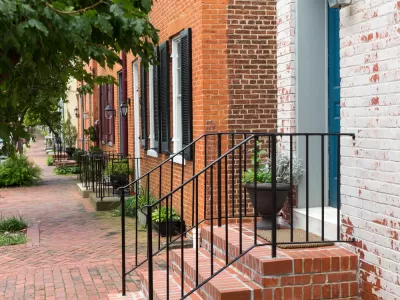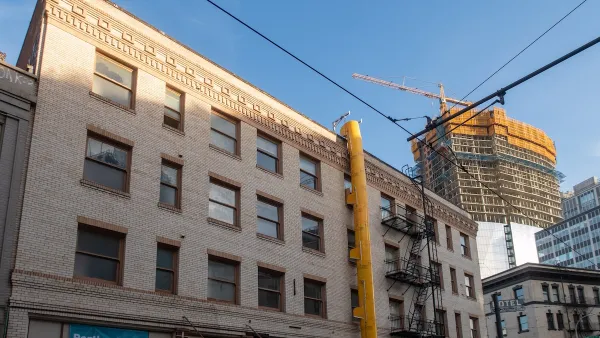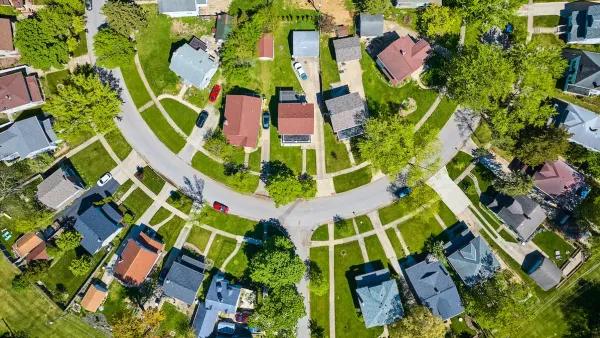New analysis reveals the geographic patterns of housing cost burdens in the United States.

CityLab analyzed U.S. Census data from the National Historical Geographic Information System to identify the neighborhoods where Americans are facing housing cost burdens.
"More than 10 percent of U.S. households spend at least half their total income on housing costs—far more than the one-third that financial experts advise as a maximum limit. These severely housing-burdened households can be rich or poor, but around half of them are located in neighborhoods where at least one neighbor in three is facing a similar housing burden," writes David Montgomery.
The locations of high housing cost burdens can be difficult to spot on a map of the United States because they are geographically small urban areas. "That’s because of the pernicious nature of housing stress," writes Montgomery. "It’s not just about poverty, though poor households are absolutely more likely to spend a majority of their income on staying housed. Rather, housing burden is a function of both income and cost. The nexus of low incomes and high costs tends to happen when wealth is located near poverty—and that happens most often in America’s cities."
FULL STORY: The Neighborhoods Where Housing Costs Devour Budgets

Planetizen Federal Action Tracker
A weekly monitor of how Trump’s orders and actions are impacting planners and planning in America.

Maui's Vacation Rental Debate Turns Ugly
Verbal attacks, misinformation campaigns and fistfights plague a high-stakes debate to convert thousands of vacation rentals into long-term housing.

Restaurant Patios Were a Pandemic Win — Why Were They so Hard to Keep?
Social distancing requirements and changes in travel patterns prompted cities to pilot new uses for street and sidewalk space. Then it got complicated.

In California Battle of Housing vs. Environment, Housing Just Won
A new state law significantly limits the power of CEQA, an environmental review law that served as a powerful tool for blocking new development.

Boulder Eliminates Parking Minimums Citywide
Officials estimate the cost of building a single underground parking space at up to $100,000.

Orange County, Florida Adopts Largest US “Sprawl Repair” Code
The ‘Orange Code’ seeks to rectify decades of sprawl-inducing, car-oriented development.
Urban Design for Planners 1: Software Tools
This six-course series explores essential urban design concepts using open source software and equips planners with the tools they need to participate fully in the urban design process.
Planning for Universal Design
Learn the tools for implementing Universal Design in planning regulations.
Heyer Gruel & Associates PA
JM Goldson LLC
Custer County Colorado
City of Camden Redevelopment Agency
City of Astoria
Transportation Research & Education Center (TREC) at Portland State University
Jefferson Parish Government
Camden Redevelopment Agency
City of Claremont





























